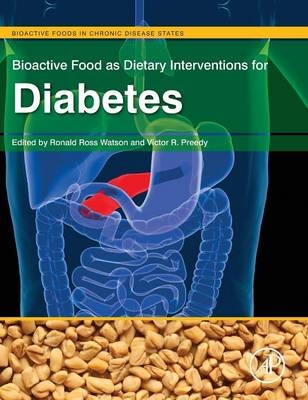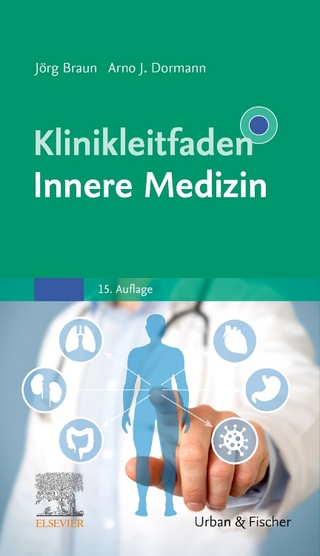
Bioactive Food as Dietary Interventions for Diabetes
Academic Press Inc (Verlag)
978-0-12-397153-1 (ISBN)
- Titel erscheint in neuer Auflage
- Artikel merken
The role of diet in the prevention, control and treatment of diabetes continues to provide significant opportunity for non-pharmaceutical interventions for many of the over 20 million people who live with this disease. Looking beyond traditional dietary controls may lead to more effective, cost efficient, and flexible options for many patients.
Bioactive Food as Dietary Interventions for Diabetes is the only available scientific resource focused on exploring the latest advances in bioactive food research, and the potential benefit of bioactive food choice on the diabetic condition. Written by experts from around the world, it presents important information that can help improve the health of those at risk for diabetes and diabetes related conditions using food selection as its foundation.
Ronald Ross Watson, PhD, is Professor of Health Promotion Sciences at the University of Arizona, Mel and Enid Zuckerman College of Public Health. Dr. Watson began his research in public health at the Harvard School of Public Health as a Fellow in 1971 doing field work on vaccines in Saudi Arabia. He has done clinical studies in Colombia, Iran, Egypt, Saudi Arabia and the United States which provides a broad international view of public health. He has served in the military reserve hospital for 17 years with extensive training in medical responses to disasters as the chief biochemistry officer of a general hospital, retiring as a Lt. Colonel. He is a distinguished member of several national and international nutrition, immunology, and cancer societies. Dr. Watson’s career has involved studying many lifestyle aspects for their uses in health promotion. He has edited over 100 biomedical reference books and 450 papers and chapters. His teaching and research focuses on alcohol, tobacco, and drugs of abuse in heart function and disease in mouse models. Victor R. Preedy BSc, PhD, DSc, FRSB, FRSPH, FRSC, FRCPath graduated with an Honours Degree in Biology and Physiology with Pharmacology. After gaining his University of London PhD, he received his Membership of the Royal College of Pathologists. He was later awarded his second doctorate (DSc), for his contribution to protein metabolism in health and disease. He is Professor of Clinical Biochemistry (Hon) at King’s College Hospital and Emeritus Professor of Nutritional Biochemistry at King’s College London. He has Honorary Professorships at the University of Hull, and the University of Suffolk. Professor Preedy was the Founding Director and then long-term Director of the Genomics Centre at King’s College London from 2006 to 2020. Professor Preedy has been awarded fellowships of the Royal Society of Biology, the Royal College of Pathologists, the Royal Society for the Promotion of Health, the Royal Institute of Public Health, the Royal Society for Public Health, the Royal Society of Chemistry and the Royal Society of Medicine. He carried out research when attached to the National Heart Hospital (part of Imperial College London), The School of Pharmacy (now part of University College London) and the MRC Centre at Northwick Park Hospital. He has collaborated with international research groups in Finland, Japan, Australia, USA, and Germany. To his credit, Professor Preedy has published over 750 articles, which includes peer-reviewed manuscripts based on original research, abstracts and symposium presentations, reviews and edited books.
Role of oxidative stress in the pathogenesis of insulin resistance and type 2 diabetes
Alternative medicines (bioactive foods and supplements) in diabetes control
Government Regulation of Dietary Supplements and Foods: Role in Diabetes
Diabetes as an Immune Dysfunction Sydrome
Antihyperglycemic potential of Secoisolaricinol diglucoside
Antidiabetic potential of trigonelline and 4-hydroxyisoleucine in Fenugreek
Community participation and diabetes control
Soya bean in the prevention and treatment of diabetes
Amino acids supplements and diabetes
Reduction in serum glucose with garlic extracts
Dietary supplements, immune modulation and diabetes control (tentative title)
Phytochemicals against type 2 diabetes
Phytotherapeutics in treating diabetes
Plant derived hydroxycinnamate derivatives, insulin sensitivity and adiponectin: implications for diabetes control
Antidiabetic activity of Allium sativum
Chromium and diabetes
DIETARY CALCIUM AND MAGNESIUM AND THE RISK OF TYPE 2 DIABETES
Polyunsaturated Fatty Acids and Insulin Resistance
VITAMIN D AND TYPE 2 DIABETES MELLITUS
Pongamia pinnata: treatment of diabetes
Oyster mushroom (Pleurotus pulmonarius) and diabetes care
Traditional medicinal plants of Indigenous Peoples of Canada and their antioxidant activity in relation to treatment of diabetes
Indian medicinal plants with hypoglycemic potential
Plant extracts and alkaloids: prevention of diabetic nephropathy
Lutein and diabetic cataractsCompounds in vegetables including Okra and Fenugreek of potential value in the treatment of diabetes
PROBIOTICS AND DIABETES/OBESITY: HEALTH IMPLICATIONS
Tradition and Perspectives of Diabetes Treatment in Greco-Arab and Islamic Medicine
State of the Art of Diabetes Treatment in Greco-Arab and Islamic Medicine
Phytonutrients in Diabetes Management
Antidiabetic effects of Punica granatum L (Pomegranate): a review
Type II Diabetes Mellitus-2011 Research Summary
Diabetes and Natural Products
L-CARNITINE IN PATIENTS WITH DIABETES
Antioxidants and inflammation in obesity
Magnesium and Metabolic Syndrome: The Role of Magnesium in Health and Disease
Obesity in Ayurveda - Dietary, Lifestyle, and Herbal Considerations
The effects of a fermented soy product and isoflavones in metabolic syndrome control
Omega 3 fatty acids and bioactive foods: from biotechnology to health promotion
Metabolic Syndrome: Diet, obesity and chronic inflammation
The Indian medicinal plant Aegle marmelos in the treatment of diabetes mellitus: Promise and Prospects
Anti-diabetic and hypoglycaemic effects of Syzygium cumini (black plum): a review
Human milk as a bioctive food
Ginger (Zingiber officinale Roscoe) in the treatment of diabetes and metabolic syndrome: preclinical observations
Antidiabetic and cardioprotective effects of Amla (Emblica officinalis Gaertn) and its phytochemicals: preclinical observations
Prevention and management of obesity by isoflavones
Antioxidant capacity of honey : potential health benefit
| Erscheint lt. Verlag | 22.10.2012 |
|---|---|
| Verlagsort | San Diego |
| Sprache | englisch |
| Maße | 191 x 235 mm |
| Gewicht | 1750 g |
| Themenwelt | Medizin / Pharmazie ► Gesundheitsfachberufe ► Diätassistenz / Ernährungsberatung |
| Medizinische Fachgebiete ► Innere Medizin ► Diabetologie | |
| Technik ► Lebensmitteltechnologie | |
| ISBN-10 | 0-12-397153-5 / 0123971535 |
| ISBN-13 | 978-0-12-397153-1 / 9780123971531 |
| Zustand | Neuware |
| Informationen gemäß Produktsicherheitsverordnung (GPSR) | |
| Haben Sie eine Frage zum Produkt? |
aus dem Bereich



